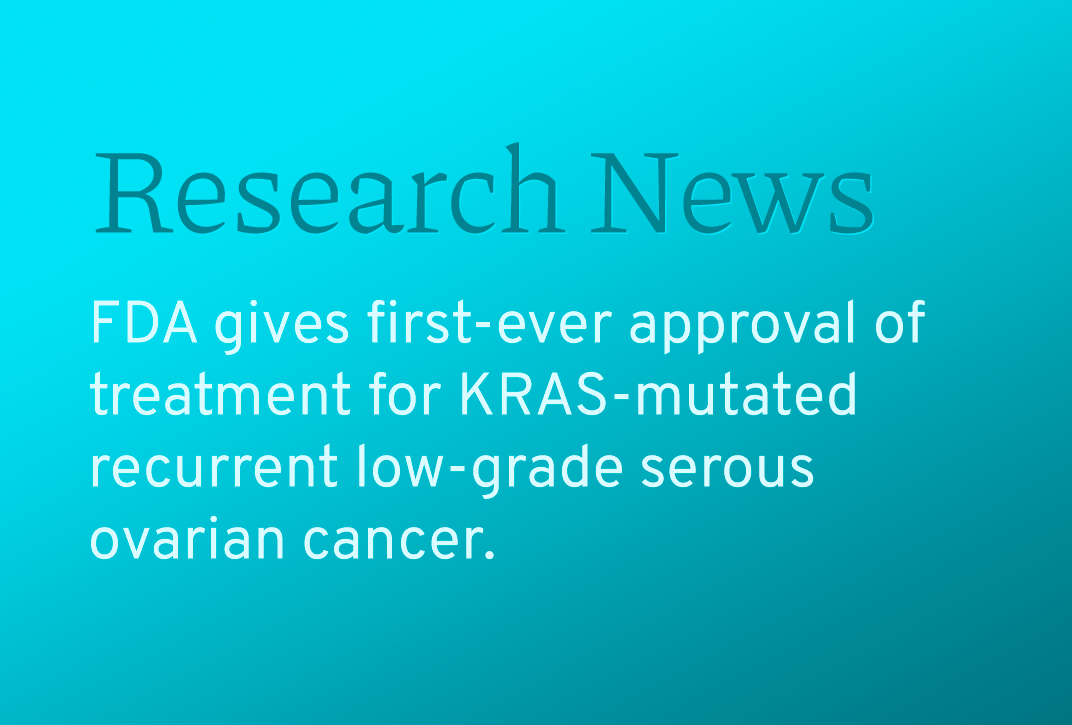Dr. Tsz-Lun Yeung, Ph.D. is a 2011 Ann Schreiber Program of Excellence Grant Recipient.
Sarah DeFeo: You were educated in Hong Kong. How did you end up doing research at MD Anderson Cancer Center in Houston?
Tsz-Lun Yeung: I became interested in science in high school, and then studied molecular biology in college at the Chinese University of Hong Kong. I became more and more interested in cancer research as I did my PhD. When thinking about where to go for my post-doctoral training, I thought of MD Anderson Cancer Center, because I knew that it is one of the best institutions in the United States for cancer research. I was lucky to find my mentor, Dr. Samuel Mok, who specializes in ovarian cancer. I’ve been working here as a post-doctoral researcher since March 2009.
SD: Tell us about your research project.
Tsz-Lun Yeung: My research focuses on identifying genes that are related to the susceptibility, progression, and diagnosis of ovarian cancer. I am interested in how cancer cells behave, and what makes them become more aggressive. I’m also interested in on what other cells are involved, and how they might contribute to cancer growth. In particular, I’m focusing on something called ELF3, which is a gene transcription factor in cells—sort of a master switch that regulates genes to turn them on and off. I think that ELF3 may be a good therapeutic target, because it seems that it changes ovarian cancer cells and encourages them to invade.
SD: How do you think your research will ultimately help patients?
Tsz-Lun Yeung: Beyond just looking for therapeutic targets, I’m hopeful that looking at these changes to genes contribute to cancer progression, but also to progression free survival? If it’s related to PFS, we can see if it’s related to treatment response. Researchers are interested in trying to find new ways predict how a patient will respond to treatment. If, for examples, we know that a high expression of a gene means that a patient will respond to a therapy very well, we may not have to treat them as aggressively. Obviously, this would be great for patients.
SD: MD Anderson has a large ovarian cancer research program. What’s it like to work there?
Tsz-Lun Yeung: I’ve been here two years and it’s been great! There are many different types of ovarian cancer, and there are researchers working on many different aspects of the disease here. It’s wonderful to be able to part of such a big community—we share patient samples and cell lines, and we share information at group meetings. It would be much harder to work in isolation, so I am fortunate. .
SD: Tell me about your future plans.
Tsz-Lun Yeung:I have a few more years of training ahead of me, but ultimately I want to be an independent investigator. It’s possible that I’ll return to Hong Kong, but there isn’t nearly as much research funding available there; the opportunities for research are much greater in the United States. This grant is a perfect example! It’s going to allow me to really focus on my research—to develop better data, to accomplish more, and to really hone in on ovarian cancer.
Tsz- Lun Yeung, PhD, is currently a postdoctoral fellow at the University of Texas MD Anderson Cancer Center. He received his bachelor and doctoral degree from the Chinese University of Hong Kong. During his graduate training his research focused on the roles of transcription factors in carcinogenesis. His current research seeks to understand how the transcription factor ELF3 involves in ovarian cancer pathogenesis. He is also interested in the study of how ovarian cancer cells interact with the tumor microenvironment.
This grant was made possible by a generous donation from the Tell Every Amazing Lady About Ovarian Cancer, Louisa M. McGregor Foundation.


